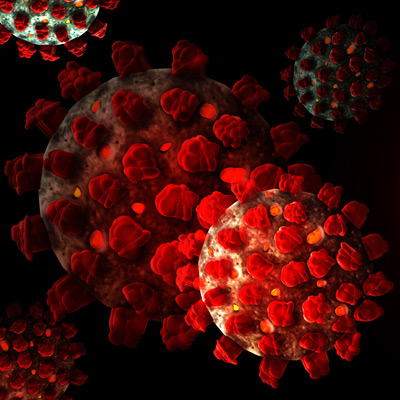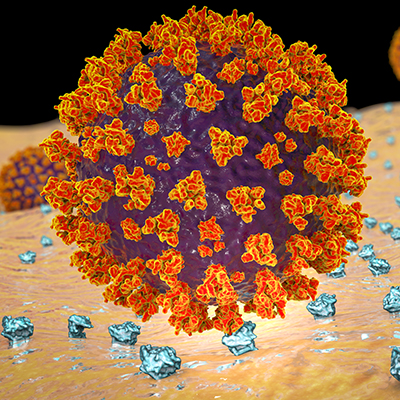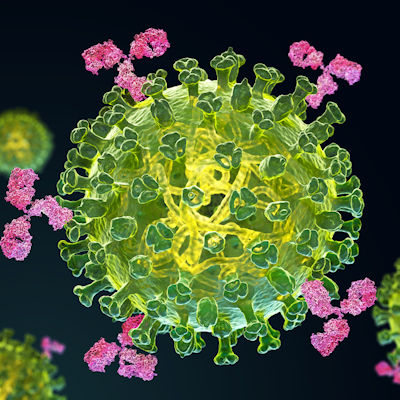September 30, 2022 -- A new drug designed by Scripps Research scientists can cause the COVID-19 virus to bring about its own demise. The drug, NMT5, coats SARS-CoV-2 with chemicals that temporarily block the human angiotensin-converting enzyme 2 (ACE2) receptor, which the virus latches onto to infect cells.
Scripps researchers have long studied memantine (coded as NMT1), a U.S. Food and Drug Administration-approved anti-flu drug for neurological diseases, and describe their latest work on NMT5 in a September 29 article in the journal Nature Chemical Biology. The team tested similar compounds and pinpointed NMT5 for two key properties: It attaches to the surface of SARS-CoV-2, and it chemically modifies human ACE2 receptors. When the virus closes in to infect a cell, its attached NMT5 adds nitroglycerine to the receptor, temporarily changing its structure and blocking the virus from binding to it.
In cell culture experiments, the drug prevented 95% of the SARS-CoV-2 omicron variant from binding to ACE2 receptors. In hamsters with COVID-19, NMT5 decreased virus levels by 100-fold, eliminated lung damage, and ameliorated inflammation.
In addition to further studying the compound in animals, the team is now making a version to evaluate for human use. Since the drug doesn't rely on attacking parts of the virus that commonly mutate, they expect it to be effective as new variants emerge. The research highlights the importance of drug combinations for maximum pandemic preparedness.
"What's so neat about this drug is that we're actually turning the virus against itself," said senior author Dr. Stuart Lipton, PhD, Scripps Research professor and chair. "We're arming it with little molecular warheads that end up preventing it from infecting our cells; it's our revenge on the virus."
Copyright © 2022 scienceboard.net









